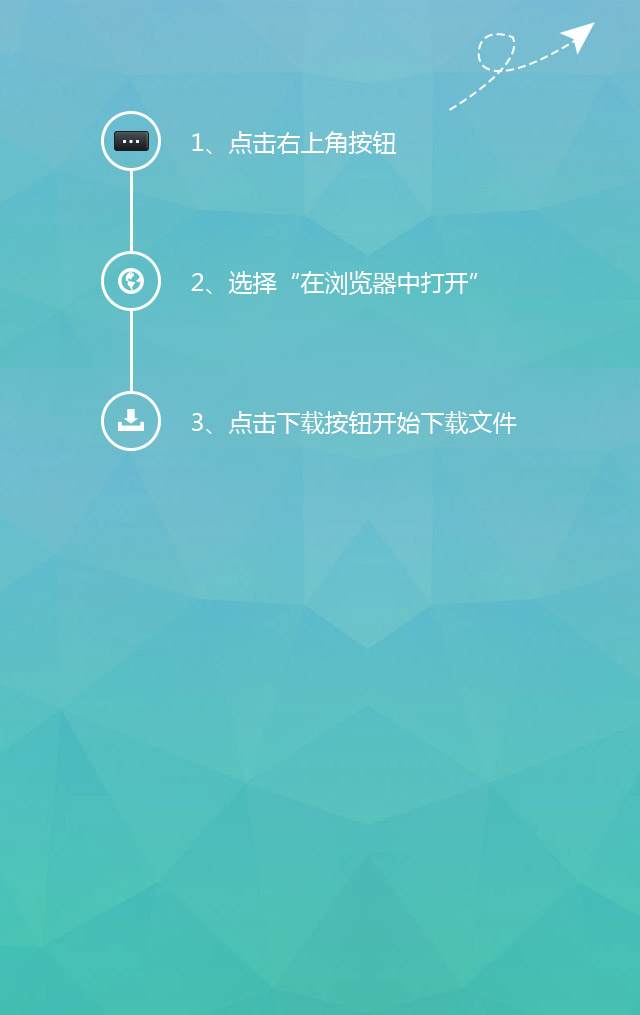第8课:早日康复《走遍美国》
第8课:早日康复《走遍美国》
ACT 1-1 “我知道你能够处理好这件事。”
【故事梗概】
一天上午,在Philip工作的劳伦斯医院,Philip医生和他的护士Molly Baker正在工作。Philip要为一个叫Carl的小患者安排一个手术,他希望Molly帮他调整一下工作日程。
Philip: Molly, I need your special talent for handling special matters.
Molly: Like what special matters?
Philip: Well, I have a scheduling problem.
Molly: Yes?
Philip: I have three tonsillectomies set for Friday with Dr. Earl.
Molly: Yes?
Philip: I need to fit a fourth operation into his schedule. And… I know you can do it.
Molly: Who's the patient?
Philip: Carl Herrera. The boy has infected tonsils, and we should remove them as soon as possible.
Molly: Well, I'll try to arrange the schedule, Dr. Stewart. But it's not going to be easy.
Philip: I know you'll be able to take care of it.
[Molly shakes her head and laughs.]
【语言点精讲】
1. I need your special talent for handling special matters.
我需要你的特殊才能来处理特殊的问题。
Philip要多插进一例手术,这给Molly出了个难题。他不是发号施令,而是“商量”加表扬。
talent: 与生俱来的才能,天资。
handle: 处理。意思相当于”take care of”。
2. Like what special matters?
像什么样的特殊问题?
“Like what…?” 这是一种极口语化的说法,用于请对方详细说明某事的时候。也可只说Like what?
3. I have three tonsillectomies set for Friday with Dr. Earl.
星期五我和Earl医生约定了三个扁桃体摘除手术。
have…set for Friday: 在星期五有…约定,把…(的时间)定在星期五。这里set是过去分词。
tonsillectomy: 扁桃腺切除术。
4. I need to fit a fourth operation into his schedule.
我得在他的日程表上再加上第四个手术。
schedule: 日程安排,工作安排。
5. The boy has infected tonsils, and we should remove them as soon as possible.
这男孩子扁桃体感染了,我们得尽快给他摘除扁桃体。
have infected tonsils: 患扁桃腺感染。动词have表示生某种病,患某种病。
as soon as possible: 尽快,越快越好。
6. I know you'll be able to take care of it.
我知道你能够处理好这件事。
可以用这个表达来表示对某人有信心。
ACT 1-2 “她对孩子很有一套办法。”
【故事梗概】
Philip在和Carl的妈妈Herrera女士讨论Carl的手术时间。Herrera女士同意星期五就进行手术,但是Carl不喜欢这个决定。
Philip: Well, Mrs. Herrera, Carl will be perfectly fine after we remove his tonsils.
Mother: Thank you for your reassurance, Dr. Stewart. He's had so many colds and sore throats recently.
Philip: Well, it's a very easy operation, Carl. You won't feel a thing.
Carl: But when do they do it?
Philip: This Friday.
Carl: But Saturday's my birthday.
Philip: Well, we could reschedule the operation, Mrs. Herrera, but I don't want to put it off too long.
Mother: No, I think it's important to do it now. We can have a birthday party for you, Carl, when you come out of the hospital.
Carl: But it won't be on my birthday.
Mother: But your health is more important, Carl, believe me.
Carl: I don't want my tonsils out.
Philip: Nurse Baker, would you come in, please?
Molly: Hello, Mrs. Herrera. Hi, Carl, how you doing?
Carl: I don't want my tonsils out.
Molly: Come with me, Carl. You and I will talk this over.
Mother: She has a special way with kids.
Philip: She sure does.
【语言点精讲】
1. Thank you for your reassurance, Dr. Stewart.
谢谢你使我放心,Stewart医生。
reassurance: 消除顾虑,安慰。
2. He's had so many colds and sore throats recently.
他最近老是感冒和嗓子疼。
cold: 感冒引起咳嗽和打喷嚏。
sore throat: 喉咙痛。
3. You won't feel a thing.
你一点也感不到疼的。
4. Well, we could reschedule the operation, Mrs. Herrera, but I don't want to put it off too long.
Herrera夫人,我们可以重新安排手术时间,可是我不想把这手术推迟太久。
reschedule sth.: 重新排定…的日程;重订…的时间表;重新计划…的时间。
put (it) off: 延后,推迟。
5. How you doing?
你怎么样啦?是“How are you doing?”的省略。这是一种非常口语化的问法。
6. You and I will talk this over.
咱们俩把这事儿谈一谈。
talk (this) over: 商量,充分讨论。
7. She has a special way with kids.
她对孩子很有一套办法。
ACT 1-3 “一切都会很好的。”
【故事梗概】
在医院里,Carl坐在沙发上,他很不高兴。Molly护士给他拿来了医院的睡衣和罩袍。Carl一心要过生日,任性得够劲,Molly在试着说服他。
Molly: Carl, does your throat hurt?
Carl: Yes.
Molly: Ok. Do you want to get better?
Carl: Yes.
Molly: Ok. We want you to get better, too. You'll have your tonsils out tomorrow, and you won't get so many colds anymore.
Carl: But if I have my tonsils out tomorrow, I'll miss my birthday party on Saturday.
Molly: I know. It's a problem, isn't it? Let me try to work something out.
Carl: What?
Molly: I have to think about it.
Carl: You're fooling me.
Molly: Oh, I'm not, Carl. Give me a chance to think about it, and I'll come up with something.
Carl: A surprise?
Molly: Maybe. But you just put on your pajamas and robe, and I'll think of a surprise.
Carl: Will it hurt?
Molly: No, There are other boys and girls here, and they're having their tonsils out. You'll meet them .
Carl: I don't want to.
Molly: Change your clothes, Carl. Everything will be just fine.
【语言点精讲】
1. It's a problem, isn't it
这是个问题,对吗?
这是一个附加问句或反意问句的例子。附加问句一般用来确认前面提到的情况是否正确。
2. Let me try to work something out.
让我想个办法解决问题。work (something) out: 想个办法解决问题。
3. I have to think about it.
我得想一想。think about: 考虑。
4. You're fooling me.
你在哄我。fooling: 开玩笑,哄骗。
5. Give me a chance to think about it, and I'll come up with something.
你给我个机会想一下,我会想出个办法的。
give sb. a chance to do sth.: 给某人个机会做某事。
come up with something: 想出办法。
6. But you just put on your pajamas and robe, and I'll think of a surprise.
你先穿上睡衣和袍子,我会想个办法给你惊喜的。Molly在试着以奖赏劝服小患者Carl。
pajamas: 睡衣睡裤(尤指男人的睡衣睡裤)。也可以拼写成pyjamas.
robe: (长及地面的)宽松长袍,睡袍。
7. Everything will be just fine.
一切都会很好的。这是医生安慰病人时常用的一句话。不当医生的人,探视病人时也常这样说。
ACT 2-1 “ 猜哑谜”
【故事梗概】
在医院里,Molly护士在陪几个快要做手术的孩子玩猜哑谜的游戏,只有Carl没有参加。其他孩子们都玩得很起劲。
Molly: OK. Do you know how to play charades?
Molly: Frank, you've never played charades?
Frank: Nope.
Molly: Carl, you're sure you're never played? [Carl shakes his head.]
Molly: Ok, Betty, Tim, and Frank. We're going to play charades. Frank, you can learn as we go. And, Carl, you join in at any time. OK, let me think. OK, I've got one. All right. [She pretended to hold an old-fashioned camera in her left hand and turning the handle with her right hand.]
Betty: A movie! A movie!
Molly: Right. A movie. OK. [She counts to six on her fingers.]
Tim: Six words. It has six words.
Frank: That's easy. I can play.
Molly: Good. OK. We've got a movie. The title...
Betty: Six words.
Molly: Right. First word...[She pulls her ear.]
Betty: Sounds like.
Tim: Sounds like...
Molly: You got that part right. Yes. [pulling her ear] Sounds like... [She shakes her head no. ] Sounds like what?
Frank: Sounds like no.
Molly: Absolutely right, Frank. Sounds like no. OK. We've got a movie. Six words. The first word sounds like no.
Frank: Row. Row.
Tim: Go.
Molly: Nope.
Tim: Show. That's it-show.
Molly: NO...OK... [She acts out the word snow with her fingers. ]
Betty: Snow.
Molly: Absolutely right,
Betty. Sounds like no - snow. OK, a movie. Six words. The first word is snow.
Frank: This is fun.
Molly: Oh, OK. [She holds up five fingers. ]
Betty: The fifth word.
Molly: Right, fifth word. [She holds up seven fingers. ]
Tim: Seven?
Molly: Absolutely right. Very good. The fifth word is seven. OK, we've got a movie. The first word is snow. Fifth word, seven.
Betty: I got it!! I got it!
Frank: Snow White and the Seven Dwarfs.
Betty: I got it.
Frank: I got it.
Molly: Frank, you got it. Betty, you had it, but you didn't say it.
Tim: I knew it.
【语言点精讲】
1. Do you know how to play charades?
你们知道怎么玩猜哑谜游戏吗?
“how to play charades”为疑问词带动词不定式构成的短语,不是完整句,不能单独作为问句。但这样的短语可以放在某些动词之后。如直接说“How to go to the park? ”是错误的,但是可以说“I wonder how to go to the park. ” “Can you tell me how to go to the park? ”
2. You're sure you've never played?
你肯定你从来没玩过吗? 这是一种核对事实的说法。
3. You join in at any time.
你随便什么时候都可以参加进来。
join in: 参加,加入。
4. OK, I've got one.
好,有了。这里是指“我想出来了。我想到了一个。”
动词get是一个口语常用词,在非正式的语境中,可以表达多种含义,如“得到,获得,想到,猜到”,等等。本情境中就出现了多次。如:
We've got a movie. (我们已经猜到是部电影。)
I got it! (我猜到了!我明白了!)
5. Sounds like no.
sound like: 听起来像…
6. That's it-show.
就是show这个词。That's it. : 就这样,对啦,就是这个。
ACT 2-2 “这帮孩子可真不好对付。”
【故事梗概】
猜哑谜游戏没有提起Carl的兴致,他还在对因为手术而不能有生日派对的事耿耿于怀。
Molly: Carl, now you know charades. Why don't you join us?
Carl: I don't like charades. It's for babies.
Molly: Oh, I like it.
Carl: Well, they're babies.
Betty: You're a sore loser.
Tim: Yeah.
Molly: No arguing. Save you voices. Between now and tomorrow you're all going to have your tonsils out. And you won't be able to speak for a while. So save your voices till then.
Philip: Hi, gang. Hi, everybody. Well, what's going on?
Molly: I sure am glad to see you, Dr. Stewart. This is a rough group.
Carl: I didn't want to play charades, so they're angry at me.
Philip: Why don't you want to play?
Carl: Because I don't want to be here. I don't want my tonsils out.
Philip: Why not?
Carl: Because my birthday is tomorrow. My mother promised me a birthday party with a clown.
Molly: But you can have one when you go home, Carl.
Carl: But my birthday is tomorrow.
Philip: I'm sorry, Carl.
Molly: Carl, you'll have your party when you go home.
Carl: But it won't be on my birthday! And you promised me a surprise.
【语言点精讲】
1. You're a sore loser.
你是个输不起的人。
a sore loser: 输不起的人。用来形容一些玩游戏输了,就表现得有失风度的人。a sore loser 也可以叫 a bad loser。输得有风度的人叫 a good loser。
2. No arguing.
别吵。No+动名词,构成一个命令句,表示禁止做某事,用于阻止别人做某事,也常出现在告示上。又如:
No littering.(禁止乱扔果皮纸屑。)
No smoking.(禁止吸烟。)
3. Hi, gang. Hi, everybody.
嗨,各位。两句都是用很轻松随便的口吻来向一群人打招呼的非正式短语。
gang: 一帮人,一群人。
4. Well, what's going on?
再干什么呢?怎么这么热闹啊?也可以说成 What's happening?
going on: 进行,发生。
5. This is a rough group.
这帮(孩子)可真不好对付。Molly在说这这句话时带有一种开玩笑的口气。
6. I didn't want to play charades, so they're angry at me.
我不想玩猜哑谜,所以他们都生我的气了。
be angry at someone: 生某人的气,对某人发怒。
7. My mother promised me a birthday party with a clown.
我妈妈答应给我举办生日庆祝会,并请小丑来助兴。
promise someone something: 答应给某人以某物,承诺给某人某物。
ACT 3-1 “噢,别这样了。”
【故事梗概】
在医院里,四个孩子刚做完手术,还不能说话。他们疼痛难受,兴致不高。Molly在逐一开导安慰他们,并承诺晚饭会有他们喜欢的口味的冰淇淋。
Molly: It hurts, doesn't it? [Betty nods her head yes.]
Molly: You'll feel better tomorrow, Betty, believe me. Only one day, and it won't hurt as much. Do you feel like eating? Having some dinner? Oh, don't look so sad. Let me tell you about your dinner. It's ice cream. [Betty smiles.]
Molly: Ice cream. All kinds of flavors. Chocolate? [Betty shakes her head no.]
Molly: Strawberry? [Betty nods yes.]
Molly: Vanilla? [Betty nods yes again.]
Molly: Vanilla, too? [Betty smiles.] I see you're feeling better already, Betty. So you will have dinner? [Betty agrees she will.]
Molly: OK, honey, we'll see to it that you have strawberry and vanilla ice cream. Just rest now. You need some rest to help you get better quickly. Hi, Frank. How you doing? Oh, come on now. You're a big boy. It doesn't hurt that much, does it? Oh, I'm sorry it hurts so much, and you won't be able to have dinner. You're just going to have ice cream. Yes, ice cream. Lots of flavors. Want to hear them? [Frank nods his head yes.]
Molly: Chocolate? [Frank loves chocolate, and he smiles.]
Molly: Then chocolate it is. One scoop or two? [Frank holds up three fingers.]
Molly: Three scoops? [Frank nods.]
Molly: Then three it will be.
[She walks over to Tim, and he holds up three fingers.]
Molly: You want three scoops also? [Tim nods.]
Molly: Chocolate, too? [Tim nods.]
Molly: Well, I see you're feeling better. [Tim shakes his head no.]
Molly: Well, at least you're acting like you feel better. Three scoops of chocolate ice cream for Tim coming up.
【语言点精讲】
1. Only one day, and it won't hurt as much.
只要过一天,就不会这么疼了。
as much: 同样的,同样程度的,同样多的。表示与某种以前的事一样多、严重、厉害等。
2. Do you feel like eating?
你想吃东西吗?
feel like doing something: 想要,想做。
3. Having some dinner?
想吃晚饭吗?这是”Do you feel like having some dinner?”的缩略。
4. OK, honey, we'll see to it that you have strawberry and vanilla ice cream.
好,亲爱的,我们一定让你吃到草莓冰淇淋和香草冰淇淋。
see to it that…: 是负责保证或管好某事。
5. Oh, come on now. You're a big boy.
噢,别这样了。你是个大孩子了。
come on: 别这样了。相当于”stop acting like that”
You're a big boy.: 你是个大孩子了(不该这样耍小孩子脾气)。
6. It doesn't hurt that much, does it?
疼得并不那么历害,是吧?
that much 中的 that是副词,表示较大的程度,常用于疑问或否定的意思。如:
Your joke isn't that funny.(你的笑话并不那么可笑。)
I don't have that many books.(我没有像人们想的那么多书。)
7. Three scoops of chocolate ice cream for Tim coming up.
Tim的三勺巧克力冰淇淋马上就到。这是Molly在模仿小饭店侍者常用的口吻。
coming up: 很快就拿来,马上送到。这是一个在非正式场合使用的短语,用于当你要帮别人盛食物或饮料时。
ACT 3-2 “但首先你得笑一笑。”
【故事梗概】
Molly用晚饭有冰淇淋的方法并没有使Carl的情绪好起来。Molly要求他用一个笑脸来交换一个生日惊喜。第二天,Carl的生日。Molly请来了小丑Popo来表演。这个惊喜令Carl很高兴。最后,Carl主动要求玩猜哑谜的游戏。
Molly: Hi, Carl. How you doing? I know it hurts. But it'll be better tomorrow. In the meantime, what would you like?
Carl: Surprise.
Molly: A surprise? I promised you a surprise, didn't I? And it wasn't just ice cream, was it? Your birthday is tomorrow, isn't it? [He nods.]
Molly: Well, maybe, just maybe, there will be surprise. But first you have to smile. I just want to see one smile from you. No smile, no surprise. That's the deal. No smile, no surprise. If you want a surprise, then you've got to smile first. [Carl finally smiles.]
Molly: How you all doing? Well, I'm glad you're feeling better because we have a little surprise for you today. It's Carl's birthday, and we have Popo the Clown to entertain you. And here he is -- Popo the Clown.
Philip: Happy birthday, Carl. Happy birthday. All right, everybody. OK, Carl. It's your birthday. What's your wish? What would you like?
[Carl pulls his ear. Then he points to his nose.]
Philip: Hmm?
Molly: You want to play charades?
【语言点精讲】
1. In the meantime, what would you like?
这会儿,你想要点儿什么?
in the meantime: 在此期间;当其时;同时。in the meantime 的一个同意说法是 meanwhile,它是一个副词。
2. But first you have to smile.
但首先你得笑一笑。这是用于与某人谈条件的方法之一。其他的说法还有:
No smile, no surprise. (不笑就没有惊喜。)
If you want a surprise, then you've got to smile first. (如果你想要一个惊喜,你就得先笑一笑。)
3. That's the deal.
就这么定了。也可以说“It's a deal.”或者“It's a date! ”
deal: 协议,交易。
4. It's Carl's birthday, and we have Popo the Clown to entertain you.
今天是Carl的生日,我们请来了小丑Popo给大家表演助兴。
Popo the Clown: 小丑 Popo。Popo(小丑名)与 the Clown是同位语。
to entertain people: 使欢乐;使娱乐。
5. And here he is -- Popo the Clown.
这位就是小丑Popo。这是介绍演员上场的一个用语。
推荐
-

-

QQ空间
-

新浪微博
-

人人网
-

豆瓣

